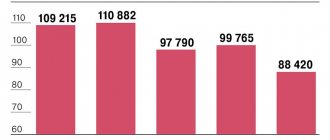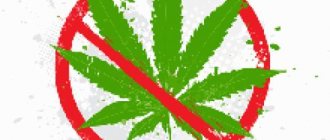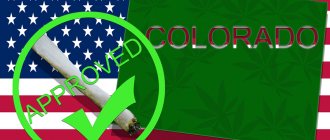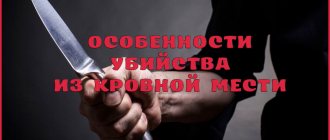In Russia, the cultivation of any drug-containing plants has been prohibited for a long time. First of all, we are talking about hemp and opium poppy. This ban was established by Federal Law No. 3 of 1998. The adoption of such a law was explained by the spread of artisanal production of plant drugs. However, Russian industry is faced with the downside of the war on drugs - dependence on foreign producers of opium poppy and cannabis for medicinal purposes. To create domestically produced raw materials, the State Duma decided to adopt a corresponding law back in 2019.
What preceded the adoption of the law
The so-called “marijuana law” was a consequence of the introduction of sanctions against the Russian industry. As a result, it turned out that nine out of ten global producers of narcotic plants for medical purposes stopped supplying raw materials to the Russian Federation.
The need to develop the local pharmaceutical market was noted back in 2012 in Presidential Decree No. 598. Then the goal was set to increase the number of domestic vital medications to 90%.
When adopting a bill allowing the cultivation of poppy and hemp, deputies also noted the need to create a state monopoly on this type of production. In addition, the law allowed the processing of foreign-made raw materials, but also only to licensed companies.
On February 10, 2022, the Cabinet of Ministers approved the list of plants that will be allowed to be grown for medicinal purposes. It included sleeping pills poppy and hemp, but only from seeds included in the state register.
The world's first cannabis church
4 months after the legalization of marijuana in Denver, an extraordinary event occurred. The world's first International Church of Cannabis was opened in the city. The discovery took place in a building that previously belonged to a Protestant church.
Adherents of the new religion call themselves evolutionists. Supporters of the new cult believe that through the use of cannabis they know God and improve themselves. Within the walls of the “temple,” lovers of “weed” intend to use it for ritual purposes.
The opening of the church took place on a significant date for all marijuana smokers - April 20. This is an interpretation of the 4/20 notation. It is believed that 4:20 am is the best time to consume cannabis.
The “temple” itself was designed by the famous artist Okuda San Miguel. The interior of the room is decorated with various graffiti in a rather variegated color scheme. Many people joke and say that only those who are “smoked” can calmly perceive wall decoration in an “eye-opening” format.
The founder of the religious organization was Steve Burke. He also heads one of the companies that markets legal cannabis in the state market. Moreover, the guy does not hide the fact that he created a church to promote his business.
Who can grow hemp and poppy under the new rules?
Despite the relaxations in drug legislation, ordinary “enterprising” citizens should not be happy. The article for the use of marijuana and its cultivation has not disappeared from Russian legislation.
Only some Federal State Unitary Enterprises (FSUEs) will receive the right to procure raw materials for the production of vital medicines.
Details of the changes made
The explanations to the bill are built around the already mentioned problem of international sanctions. As a result of restrictions on the supply of a number of goods to Russia, the production of some potent medications has been jeopardized. To solve the problem, legislators decided to revise restrictions on the cultivation of raw materials by Russian companies.
Nominally, the new law repeals the provisions of Federal Law No. 3 of 1998, but the changes will not affect everyone. Only licensed companies with a large share of state capital will be able to grow previously banned varieties of poppy and hemp. Thus, the deputies decided to avoid the risks of disguising the drug business as medical production.
The law also notes the need to develop the cultivation of edible poppy, since Russian companies purchase this raw material abroad in the amount of up to 10 thousand tons per year.
In addition to the need to obtain a license for cultivating poppy and hemp, the following requirements are established for plants:
- when used in medicine, the content of psychotropic substances in plants is not limited;
- for use for other purposes (in the food industry, etc.) only poppy containing no more than 0.6% codeine, thebaine, morphine and oripavine, and hemp containing no more than 0.1% tetrahydrocannabinol in one bush are allowed.
For sowing, you can only use seeds of the first reproduction (for poppy) and from the first to third reproduction (for hemp).
Can they be planted for buying or selling hemp seeds?
From the restrictions of the law described above, it follows that the sale of only certain types of hemp seeds is permitted. At the same time, they can be sold for industrial purposes, which means to legal entities and manufacturers of certain drugs.
In addition, there is Decree of the Government of the Russian Federation No. 460 of 2007, which specifies the varieties of hemp permitted for sale for industrial purposes. All of them are characterized by low cannabinol (THC) content. Sale of other varieties is prohibited.
In addition to liability for the use of marijuana, there are penalties for its purchase and sale.
Have a question for a lawyer? Ask now, call and get a free consultation from leading lawyers in your city. We will answer your questions quickly and try to help with your specific case.
Telephone in Moscow and the Moscow region: +7
Phone in St. Petersburg and Leningrad region: +7
Free hotline throughout Russia: 8 (800) 301-39-20
A person who purchases cannabis containing more than 0.05 grams of THC (substantial amount) may be sentenced to:
- Fine up to 40 thousand rubles;
- Compulsory work for 480 hours;
- Correctional labor for 2 years;
- Imprisonment or restriction thereof for up to 3 years.
For a large amount of THC contained in “weed” (0.25 grams), they can be imprisoned for 3-10 years, with an additional restriction of freedom for another year and a fine of half a million rubles.
With 50 grams of THC, the term of imprisonment is determined in the range from 10 to 15 years, and an additional fine and restrictions on freedom will amount to 500 thousand rubles and 1.5 years, respectively.
As for buyers of small amounts of “grass,” they only face a fine under Article 6.8 of the Code of Administrative Offenses of the Russian Federation in the amount of 4-5 thousand rubles, or arrest for 15 days.
The gradation described above allows you to understand how much grass you can have with you. However, it is worth considering that if its owner is found guilty of selling this plant, he may be prosecuted under Article 228.1 of the Criminal Code of the Russian Federation. In this case, he faces from 4 to 8 years in prison with an additional restriction of freedom for another year.
Aggravating circumstances include sales through the media and the Internet, as well as in transport, correctional and educational institutions, as well as on sports grounds and entertainment venues.
In this case, the term is determined in the range of 5-12 years, restriction of freedom can reach 1.5 years, and the fine can be half a million rubles.
You can get up to 15 years in prison for selling cannabis with a significant THC content, and for a large amount, as well as for committing a crime using your official position or as part of an organized group, you can get up to 20 years. Additionally, the court may prohibit working in a certain area for the same period and impose a fine of up to a million rubles.
Were your hopes justified?
After 3 years, we can sum up the first results of legalization in Colorado. Let us say right away that the negative forecasts turned out to be wrong. The state has not become like the capital of Holland, where coffee shops for weed lovers are open on every corner.
Cannabis can only be sold in licensed retail outlets. However, drug use is permitted exclusively at home, and only with the permission of the homeowner.
Only persons over 21 years of age can purchase weed. However, the maximum weight of the purchased product is only one ounce. Such rules apply only to persons who have a passport issued within the state. Citizens from other regions of the country have the right to buy a quarter of the specified amount of cannabis.
The number of purchases per day is in no way unlimited. However, you are allowed to store no more than one ounce. The law allows you to share the drug with friends, but reselling weed is prohibited. In addition, state residents can grow marijuana at home. This can only be done in an inaccessible and well-protected place from outsiders.
It should be noted that trade in cannabis for medical and recreational purposes is regulated by different permits. If a dealer runs out of “weed” for one purpose, he does not have the right to sell marijuana intended for another purpose by simply changing the labels on the product.
Statistics from the Department of State Revenues report that in March 2014 alone, shops selling “weed” earned over nineteen million dollars. Moreover, a month earlier the amount was 5 million less. In the first 90 days after legalization of cannabis sales, the state treasury received more than $7 million. State authorities used the funds received to finance schools, child care institutions and various educational programs that explain to citizens how to properly handle and use marijuana.
Over the past time, we can confidently say that the “weed” trade is thriving. Immediately, the increase in sales was associated with the effect of novelty. However, it is already clear that this is not entirely true. Some companies were even looking to sell vacation packages to Colorado. However, the Department of Tourism did not find this idea attractive. Nobody wants a state to be associated solely with the ability to freely smoke weed.
Entire educational hubs have been opened throughout the state, where everyone is taught the legal trade in marijuana. A lot of vacancies related to this type of business have appeared on local labor exchanges. For example, you can find advertisements seeking sales consultants, farmers and journalists. To work in this area you need to obtain a special permit. Note that today the process of obtaining a license is quite complex and confusing. To obtain a permit to work in the cannabis trade, you need to make many visits to the authorities supervising this activity.
The data on the crime situation is also quite optimistic. In the first few months alone, the state's homicide rate dropped by a record 66 percent. At the same time, the number of criminal cases related to the illegal trafficking of “weed” has become even smaller. It is too early to draw far-reaching conclusions. But it is clear that the state has not become more crime-prone because marijuana has become legal and more accessible.
What is the penalty for using marijuana?
There is an article for the use of marijuana only in the Code of Administrative Offenses of the Russian Federation. Therefore, the punishment is relatively mild.
For smoking at home, under Article 6.9 of the Code of Administrative Offenses of the Russian Federation, you face a fine of 4-5 thousand rubles or arrest for 15 days. Foreign citizens are being deported from Russia.
An identical punishment is provided for under Article 20.20 of the Code of Administrative Offenses of the Russian Federation, but this is liability for the use of marijuana in a public place.
Article 20.22 of the Code of Administrative Offenses of the Russian Federation provides for a fine of 1.5-2 thousand rubles for the parents of a teenager who smoked weed in a public place.
However, you should not think that the punishment will always be limited to a small fine. There is a very fine line between using and possessing marijuana. And if the amount of the drug found turns out to be significant (more than 6 grams), then a criminal case will be initiated, and the culprit can be imprisoned for up to 3 years. Large and especially large amounts of “weed” (100 grams and 100 kilograms, respectively) will result in imprisonment of up to 10-15 years.
Colorado's Experience with Marijuana Legalization
A rather paradoxical situation has developed in the USA. At the federal level, the sale of “weed” is strictly prohibited. The then President of the country Barack Obama made a statement that the decision on legalization should be made by each state independently. At the same time, the federal government will not oppose the decision of local authorities in any way. Today, Colorado is a kind of testing ground. If the experience of this state is considered positive, legalization has every chance to eventually spread throughout the country.
In essence, the legalization of marijuana trade is a capitulation of the principle of zero tolerance. It was proclaimed back in 1971 by President Richard Nixon. Then a complete ban on the use, storage and distribution of cannabis was introduced.
a trillion dollars flushed down the toilet
For 42 years the United States followed the established principle. Over one trillion dollars has been spent on the fight against weed. Now we can safely say that these funds were wasted.
As a result of the tough fight against drugs, the number of drug addicts has not decreased. On the contrary, their number has only increased. The quality of the “grass” has improved. In addition, it has become much more accessible to ordinary citizens. As a result of the process of complete criminalization of the cannabis trade, the country has taken first place in the world in terms of the number of prisoners.
During the 42 years of the merciless fight against marijuana, more than 40 million people were imprisoned in US prisons, convicted of various drug-related offenses. In addition to the social problem, this also created a serious burden on the country's budget. Maintaining such a number of prisoners is not cheap.
The criminalization of the cannabis trade has contributed to an increase in crime in general. Wars between drug traffickers for markets have led to many murders and other crimes. As a result, instead of improving the crime situation in the country, the opposite process occurred.
The cannabis trade has become a profitable, albeit dangerous, business. Young people from poor families began to actively get involved in this profitable business. Many of them saw it as their only chance to make a “career” and get rich. As a result, leading American analysts came to the conclusion that an all-out fight against the weed trade:
- an extremely expensive task;
- creates a lot of social problems;
- ineffective and useless.
As a result, the United States decided to change strategy. It was decided to try to curb the weed trade for the benefit of the country.
After the announcement of legalization in Colorado, many analysts made rosy predictions. It was expected that the decriminalization of the sale and use of cannabis would lead to a reduction in the number of prisoners. A huge percentage of those convicted were people convicted of smoking drugs. It was predicted that legalization would allow the police to concentrate on investigating more serious crimes than catching pot addicts. It was also estimated that Colorado would save about $40 million per year. And the state's direct revenue could rise to $400 million annually. At the same time, analysts said that the legalization of “weed” throughout the country would attract about $2.5 billion to the US budget.
Another expected consequence was the collapse of the drug mafia and a significant reduction in related crimes. Note that this is a long-term forecast. In 2014, there were only 24 cannabis stores in all of Colorado.
Negative forecasts were also voiced. Opponents of legalization argued that the entire state would turn into one big coffee shop. At the same time, the number of weed smokers will increase significantly, and Colorado will become overcrowded with drug addicts who will come from all over the country.
Find out how to cure addiction! Talk to a narcologist right now
What to do if someone gave you weed?
Attempts to plant drugs usually occur during a personal search or search. The difference between these concepts is that a search can be carried out only if a criminal case is initiated, and an inspection can be carried out upon suspicion of the person’s involvement in a crime. But in essence, the actions of police officers are almost identical operational activities.
It is important that the search takes place in the presence of witnesses. But since the police have the right, if there is suspicion, to examine a person on their own, in practice, after discovering drugs and other prohibited substances on him, they attract witnesses to re-examine and draw up a report.
In this case, it is necessary to indicate in the protocol and inform the witnesses that an inspection had already been carried out before their involvement.
If drugs were planted during his trial, you need to deny that they belong to the person being searched, and also take advantage of the right given by Article 51 of the Constitution of the Russian Federation and not give evidence about yourself.
Immediately after drawing up the report, the detainee has the right to seek help from a lawyer who will help prove the fact of falsification of evidence and false accusation of a person for drug possession.
Overdose symptoms
Signs of marijuana poisoning appear several minutes or several hours after consuming the drug.
An overdose of marijuana is manifested by:
- dilation of the pupils, lack of their reaction to light;
- redness of the face;
- dry mucous membranes;
- increased appetite;
- hoarseness of voice;
- rapid heartbeat - pulse rate exceeds 100 beats per minute;
- high blood pressure;
- pain in the heart area;
- trembling in the body, convulsions;
- fever or chills;
- acute psychosis (delirium): foggy consciousness, anxiety, fear, obsessive states, delirium, hallucinations, disorientation in time;
- neurological changes: difficulty speaking and thinking, sweeping movements of the limbs;
- disorder of consciousness: stunned, the victim reacts poorly to external stimuli;
- pathological sleep (stupor).
A person can remain in this state for several days.











